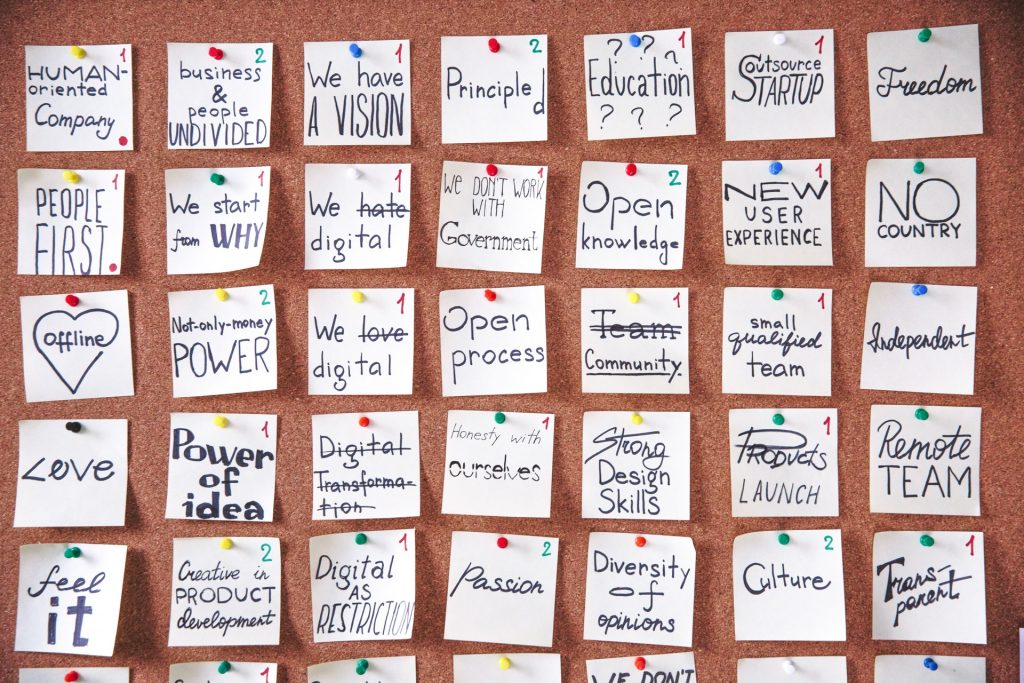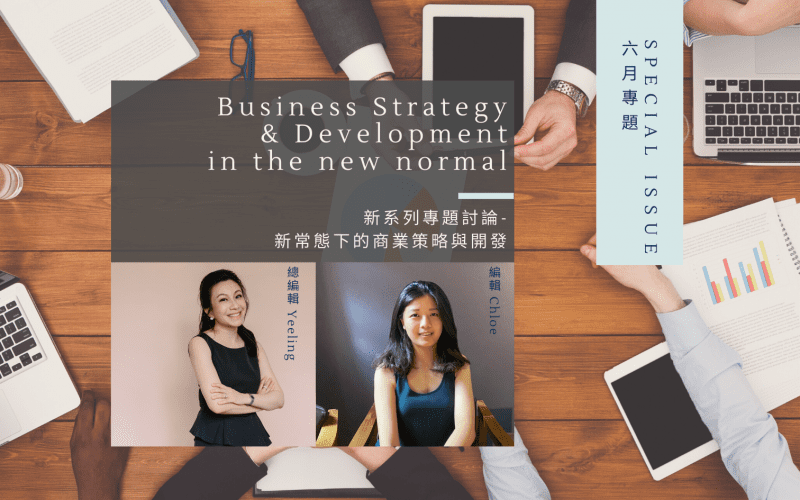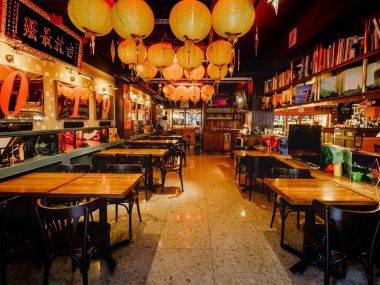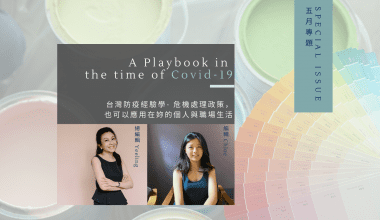As we adapt to the new normal of living with COVID-19, it is opportune to be reminded that ‘the only constant in life is change’. This time though, change has been more abrupt and urgent, and individuals and businesses have had to adjust more quickly to survive. In an environment of constant change, speed notwithstanding, what is business strategy and how important is it? In our special issue on Business Strategy that will be released in segments over the next 4 weeks, we will hear from our thought leaders, who will share their insight and experience.
當我們開始適應 COVID-19 後的新常態世界時,有個適時的提醒給你:「生活中唯一不變的就是變」。但是,這一次變化來得突然又緊迫,個人和企業都比以往更快進行調整,才有辦法生存。在瞬息萬變的環境中,什麼才是真正的商務策略?它又有多重要?在接下來的四個星期,我們將開始新系列的「商務策略」專欄,透過商業領袖的分享,從中學習她們的洞見和經驗。
It could not be more fitting to start this special issue with some views from our very own thought leader Tiffany Chou, founder of CAREhER and former head of APAC at The Dream Collective. At CAREhER, we are encouraged to embark on ‘stretch projects’, which means to take on tasks that are beyond our current knowledge. This is important for developing new skills and for self-reflection, but also critical in building team agility and developing leadership skills.
It really is as simple as asking to help on projects that one is interested in, and using it as a stepping stone to prepare for a new position. Ultimately, the individual, the team and the company benefits.
首先由我們 CAREhER 的創辦人、The Dream Collective 亞太地區前負責人Tiffany Chou 開始這個專欄是再合適不過的。在 CAREhER,我們鼓勵進行「延伸專案」,意思是接任超出我們現有知識範圍的任務。這對於開發新技能和自我反思很重要,同時也能幫助團隊建立敏捷度、發展領導能力。
執行上其實很簡單,就是幫助每個成員發展自己感興趣的專案,作為其新職位的墊腳石。而最終,個人、團隊和公司將可以從中受益。
This forms part of CAREhER’s business strategy, as we pride ourselves on the ability to learn and in being agile, both as a company and as individual employees. The concept of business strategy might seem out of one’s league, especially in a corporate setting, with an end goal set in stone that will be accomplished by senior managers and the C-Suite. But let’s work to demystify it here.
這是 CAREhER 商業策略的一部分,我們以公司和每個員工的學習能力與敏捷力自豪。商業策略的概念在某些地方似乎不合時宜,尤其是在大企業環境中,總有著由高階經理人負責的、一成不變的最終目標。但且讓我們在這裡揭開它的神秘面紗。

A business strategy, put plainly, is an outline of how a business should conduct itself to achieve its goals. It could be anything from how to attract more customers, outperform competitors, be operationally efficient, optimise resources or attain higher profitability. This textbook definition, which you will find just by googling, is not the focus here.
At this moment, many countries and businesses are still knee deep in the crisis management phase of COVID-19, but the winners are the ones that are already planning for how they are able to set themselves up on the right track as we the world emerges from this crisis.
While ensuring immediate business continuity is a priority, these businesses are constantly evaluating if their strategies remain fit for this purpose, and changing course where needed. In this, they take into consideration evolving customer & employee behaviours, the need to invest in and deploy new technologies and reassessing their supply chain.
簡而言之,商業策略是企業如何操作以實現其目標。包括如何吸引更多客戶、超越競爭對手、提升營運效率、優化資源或獲得更高的盈利能力。你可以通過網路搜尋或教科書找到定義,但這些都不是我們此次的重點。
當前,許多國家和企業仍處於 COVID-19 危機管理階段,但是贏家們早已在計劃著,如何在危機後,世界崛起的過程中,建立自己在正確軌道上。雖然確保營運的連續性是當務之急,但這些企業正在不斷評估其商業策略是否符合這個目標,並在需要時改變戰術路線。他們考量了發展消費者與員工的行為、投資和部署新技術以及重新評估其供應鏈的需求。

There has been a paradigm shift in what is essential to a business surviving. Being resilient and tough, and being able to snap back into form, has been the gold standard for as long as the concept of business strategy has existed. With abrupt and unexpected systemic changes that we are seeing today, survival has become about agility and adapting.
Social systems, economies, politics, consumer behaviour & motivation, what individuals now value – these are all in flux and we are unlikely to see any of these aspects stabilising until there is some certainty of a COVID-19 vaccine.
對於何謂「企業生存的基本條件」出現了典範轉移。堅韌、強壯,並能夠迅速恢復正常運作模式,成為了商務策略的黃金標準。隨著現在所面對突如其來的系統性變化,生存的一切都關乎「敏捷」和「適應」。
社會制度、政治經濟、消費者行為和動機、個人所重視的價值與因素等等,都在不斷變化,在有確定對抗 COVID-19 疫苗問世以前,我們不太可能看到有任何層面會開始穩定下來。
It may feel unsettling, but I bring you back to the reminder that ‘the only constant in life is change’. And this applies to business strategy. In the next few weeks, we will read about companies that have successfully implemented digitalisation strategies, pivoted their businesses in this time, and how they have managed the business transformation process.
One thing is for sure, is that while many small, medium, even large businesses may not survive, every survivor will be adapting. Adapting will not be an isolated event, but a continuous process of fine tuning and responding to what will always be a new normal.
疫情後的一切也許讓你感到不安,但讓我再次提起文章開頭所說的:「生活中唯一不變的就是變」,這同樣也適用於商業策略。在接下來的幾周,我們將來探討那些成功實行數位化戰略、在疫情中開創業務的公司,以及他們如何管理企業轉型的過程。
儘管許多中小型企業在這段期間無法生存,但每個在這波襲擊後的倖存者都將具有重要的「適應力」。適應力將不再是一個獨立的議題或事件,而是一個持續性的微調和響應過程,這將永遠是一個新常態。

At CAREhER, our goal is to help working women build resources, meet and connect with like minded women outside their circles. We run monthly professional workshops and networking events, and together with you we look forward to building a stronger community that we can all learn and benefit from.
在 CAREhER,我們的目標是幫助職業女性積累資源,並與平時生活圈以外的、志同道合的女性們認識與連結。我們每月舉辦一次專業研討會和社交活動,期待跟妳一起建立一個人人都能從中學習和受益的強大社群。








